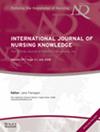The effects of nursing care based on Levine's Conservation Model on fatigue, depression, perceived social support, and sleep quality in infertile women: A randomized controlled trial
Abstract
Purpose
The purpose of this study was to investigate the effects of nursing care based on the Levine's Conservation Model on depression caused by infertility, fatigue, perceived social support, and sleep quality levels.
Methods
This study includes randomized controlled trial that was conducted from July 2019 to April 2020, with 65 Turkish women with infertility (experimental group: 34, control group: 31). We collected data using the Visual Similarity Scale for Fatigue, the Pittsburgh Sleep Quality Index, the Beck's Depression Inventory, and the Multidimensional Perceived Social Support Scale. The experimental group received nursing care based on the Levine's Conservation Model. Data were analyzed using t-tests and χ2 tests analyses.
Findings
As a result of the measurements made, it was found that the experimental group had a lower fatigue level than the control group, with a statistically significant difference between the groups (p < 0.001). It was also found that the experimental group had higher energy and perceived social support scores than the control group after the practice, with a statistically significant difference between the groups (p < 0.001). As a result of the measurements made after the practice, it was found that the experimental group had a lower depression level than the control group, with a statistically significant difference between the groups (p < 0.001).
Conclusions
Nursing care based on the Levine's Conservation Model decreased fatigue and depression in women receiving infertility treatment and increased perceived social support and sleep.
Implications for nursing practice
This research provides important findings about nursing care based on Levine's Conservation Model for women receiving infertility treatment. It decreased depression and fatigue and increased perceived social support and sleep quality.

 求助内容:
求助内容: 应助结果提醒方式:
应助结果提醒方式:


